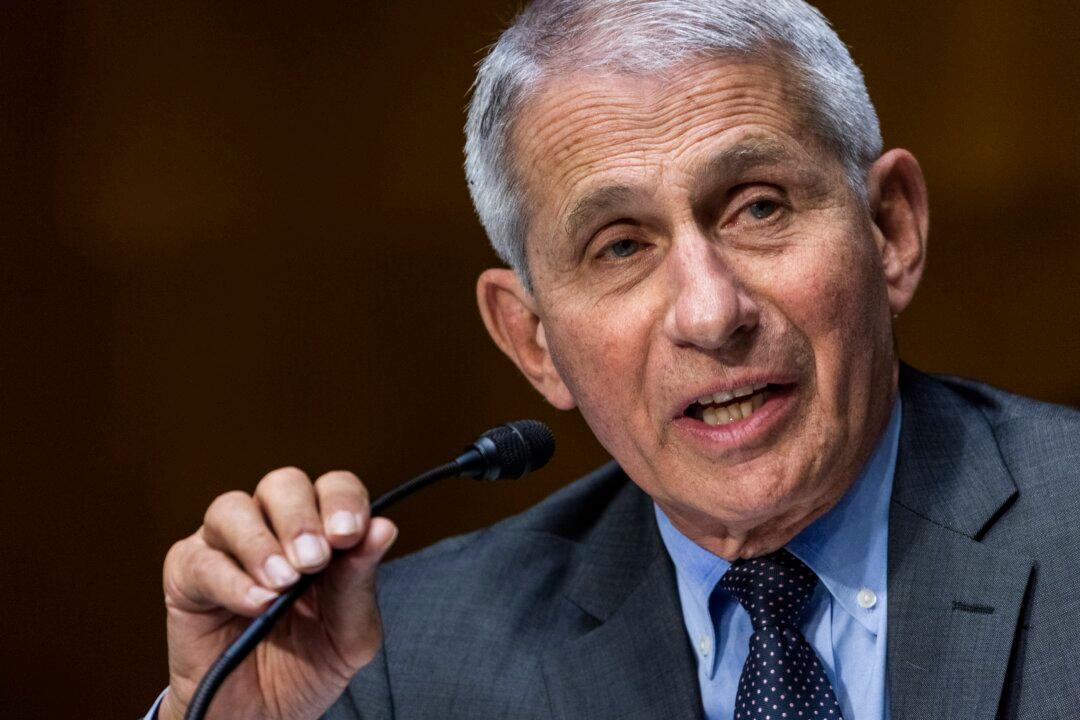White House chief medical adviser Dr. Anthony Fauci said on Jan. 23 that he’s “as confident as you can be” that most of the United States will reach a peak in Omicron coronavirus variant infections within the middle of February.
“You never want to be overconfident when you’re dealing with this virus,” Fauci, director of the National Institute of Allergy and Infectious Diseases, told ABC’s “This Week.” “But if you look at the patterns that we’ve seen in South Africa, in the UK, and in Israel and in the northeast and New England and upper midwest states, they have peaked and [are] starting to come down rather sharply.




